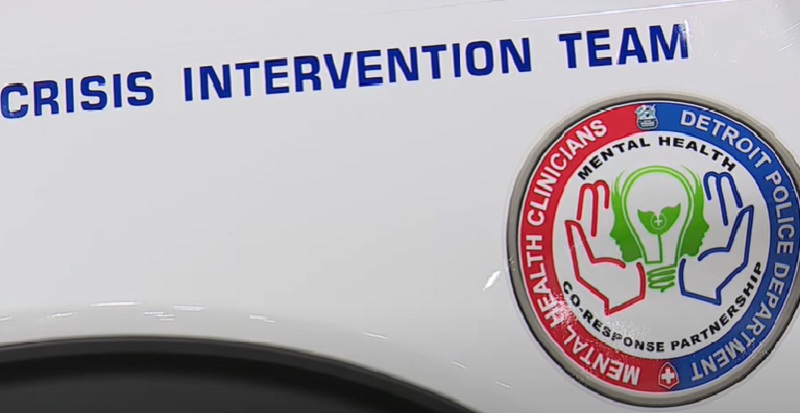
We can celebrate the fact that over the past decade or so a new awareness of mental health has developed, along with greater acceptance of treatment and care. For law enforcement and other first responders, this awareness has opened doors for treatment with less stigma, although there is plenty of work to be done.
As with most trends, scientific, social, or political, the pendulum is still swinging. The history of treating emotional and physical causes of dysfunction is not a pretty one. The mentally ill were once considered demon-possessed or cursed. Treatments might include confinement in deplorable conditions, radical surgery like a lobotomy, or abandonment to the wilds. Depression and suicidal thoughts were considered sinful and cured by pulling oneself up and getting over it. Medications that developed were often over-prescribed and poorly monitored.
Today there is more attention, staffing, medication, and compassion than ever before for those dealing with challenges to mental health. Our understanding of how the brain works, though still mysterious, has advanced rapidly. Psychological terms are now part of the vernacular. And that is part of the dark side of the pendulum swing.
Psychology, with all of its merit, has become something of a religion in American culture as traditional spiritual practices subside. For the vast majority of humans, there is a need to believe in something to explain what we cannot control or understand. In years past when a disaster struck, reporters would call upon priests, preachers, and rabbis to hear comforting words and an assurance that there was hope even in the heart of tragedy. Now the interviews are with psychologists and counselors.
With the proliferation of mental health information, there has been, perhaps, a bit of loss of the acceptance of difficulties in life. Relationships are not allowed to simply “be”, but are examined through the lens of analysis. Conversations between friends when troubles come can be marred by the compulsion to solve the problem, to label it, to write off adversaries with a diagnosis. Even worse, there is an increasing tendency to diagnose ourselves and our loved ones with popular brands like narcissism, autism, obsessive-compulsive disorder, anxiety, depression, borderline personality, schizophrenia, PTSD, or bipolar disorder.
That can be a problem for a few reasons. One is that these conditions have specific diagnostic criteria and require a professional to assess. Another is that it can lead to improper treatment. Third is that it can relieve a person of dealing with an issue, because the condition is wrongly blamed for behavior, assuming it is out of a person’s control. Another reason is that transient problems that are common to the human animal are different than chronic conditions that present life-long challenges to living a normal life.
Perhaps the most dangerous result of arm-chair diagnosis is that the person so labeled might feel trapped in that condition and live up or down to expectations. It may be rather like someone with a cough who looks up their symptoms online and comes to believe the worst possible diagnosis, becoming sick with worry and self-medicating.
This labeling is a concern in the proliferation of social-emotional learning (SEL) that is widespread in public schools. The concern is that, as students are taught helpful skills in dealing with themselves and others, the message that emotions and feelings are the primary guide in life and must be fed may lead to a lack of empathy for others and a lack of resilience against unhelpful impulses. Labeling theory has long been accepted in criminology. A lot of juveniles shoplift, but the few that are caught are now thieves and lawbreakers and may get their course set within that expectation.
Besides displacing spirituality (there is plenty of room for both, don’t misunderstand), mental health considerations are displacing some traditional criminal justice arenas. It must be noted that criminal defendants have a well-established set of boundaries embodied in the Constitution. A person who is labeled by society’s institutions of health or justice certainly has some civil liberty protections, but the specter of re-education camps and thought crimes should not be disregarded. Should a teenager sentenced to alcohol awareness for a minor in possession of alcohol charge have to participate in meditative gong exercises?
The call for harsh criminal penalties for hate crimes borders on prosecution for thought crimes. As implausible as it may sound, listen to the conversations around politics and race and you’ll hear opinions expressed that are immediately labeled as a hate crime deemed synonymous with hate speech and often defined merely by one’s disagreement with another. If being “triggered” or offended becomes criminal, those in power will define those in disagreement as a threat to public safety.
Legal insanity and diminished capacity defenses are not the same as a diagnosable mental illness or passing mental breakdown. If a person is attacking someone with a knife, it matters not to the victim whether the knife-wielder is evil, having a bad day, is in a psychotic breakdown, or was angry over missing out on the last piece of birthday cake. It doesn’t matter to a responding social worker or police officer, either. Yet when the scene is reported by the media, any force used against the assailant will be decried as cruel treatment of the mentally ill.
To be clear, the advances in recognizing and treating mental illness are something to be grateful for. More services for those suffering is a great thing. Let us be vigilant lest we become a society of citizens trading roles from victim to diagnostician, and the weaponizing of mental illness against political enemies.